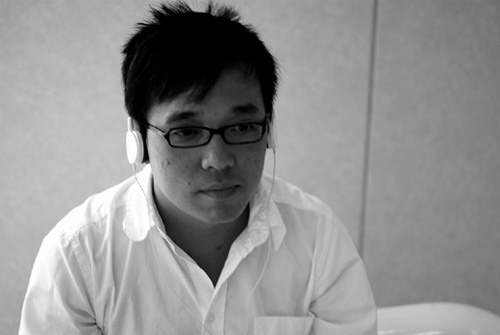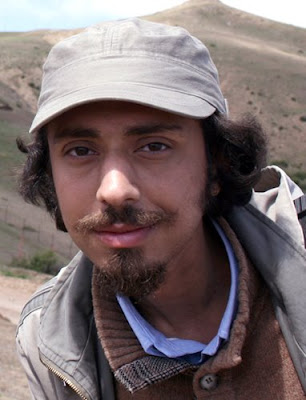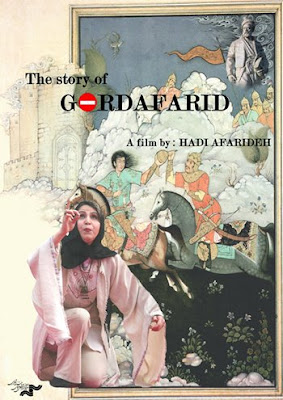Title: Radio Mihu
Director: Lee Jong-wang

a portrait of Bayas
Synopsis:
"Good morning, radio land. You're listening to Radio Mihu, and this is Bayas. Today we're going to talk about pares, persimmons and some gossip about mudflows ..." Sharply and jokingly, Bayas tells the story of the reconstruction after 921 earthquake at the Mihu tribe.
"Mihu" means make up for each others deficiency and set up a whole new homeland. However, due to the limited resources and different situation, not all the tribe’s people can participate in the reconstruction. The longstanding grudge has suddenly explored.
In this documentary, we'll see the disunity and conflicts in the tribe, and we'll find that this aboriginal tribe is just like a mini version of the society of Taiwan.
Director’s Statement:
In September of 1999, 12 of us from Fullshot Communication Foundation decided to go to the disaster area of 921 earthquake in central Taiwan to make documentaries. To our surprise, this trip has changed our impression on the land, humanity, and ourselves.
We spent four years in central Taiwan, and we have become friends with the victims of the earthquakes. The complexion thus confused us; it’s hard to say who’s shooting the documentary, and who’s being shot. With our cameras, we have learned from Mother Nature and the victims, and witnessed the power of reconstruction, spiritually and physically, among common people.
The process, or we called it “mission”, was difficult and tiring, but we’re finally going to finish the seven documentaries. Five of them were finished this year (2004), and Radio Mihu is one of them. There are two more will be completed shortly. We sincerely hope that people will open their minds and understand each other more after watching the documentaries. Standing on a common ground, only can we hug each other and face the difficulties bravely. We’ll then accept the reality and step forward.
Names of festivals and prizes:
2007 Taiwan Film Festival. San Francisco, USA
2006 The 4th Hong Kong Social Movement Film Festival
2005 Yamagata International Documentary Film Festival, JAPAN
2004 Taiwan International Documentary Film Festival Taiwan Award Special Jury Prize, 27th Golden Harvest Film Festival Digital Video Merit Prize
【部落之音】
Mihu(彌互)意味著相互彌補缺失,共同創造全新伊甸園。
這是大安溪畔雙 崎泰雅族部落在九二一後共同期望的遠景。
然而,在資源有限、現實條件不 同的狀態下,並非部落人皆參與這樣的重建道路,累積已久的恩恩怨怨在地 震中,突然一下子浮上台面…。
地下電台主持人巴亞斯在其中穿針引線,希望部落人能安靜聽聽不同的部落之音。





































